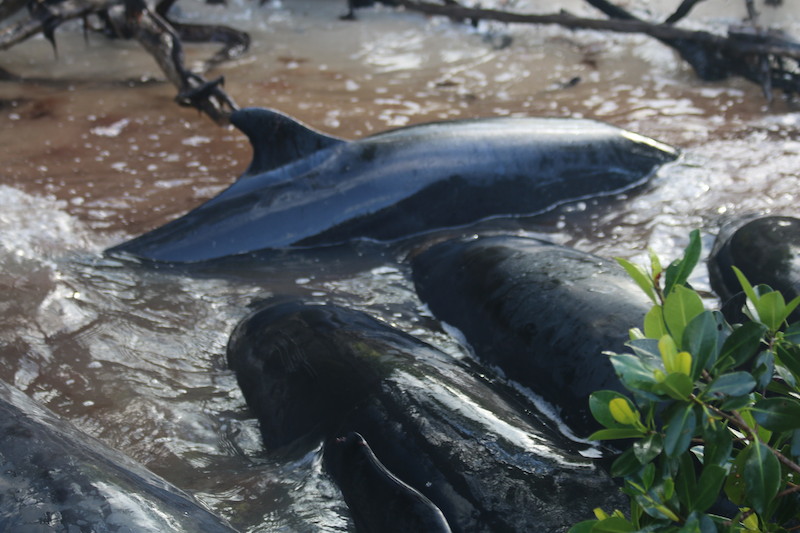Mote and Partners Respond to 95 False Killer Whales Stranding off South Florida
A total of 95 false killer whales were stranded off the coast of Monroe County in South Florida. Of the total 95 whales, 72 died on their own, 10 were humanely euthanized, and 13 are unaccounted for.
The U.S. Coast Guard first spotted the whales stranded along Hog Key in the Florida Everglades Saturday morning. Attempts were made by rescuers early on to try and herd the animals back out into deeper waters. The whales, according to NOAA, can weigh about 1,500 pounds and can be up to 20 feet long.
Members from Mote’s Stranding Investigations Program, Florida Fish and Wildlife Conservation Commission, National Oceanic Atmospheric Administration and University of Florida performed complete necropsies on eight of the animals and samples for genetics were collected from all known animals. Veterinarians from Mote, NOAA and UF humanely euthanized 10 of the stranded animals.
In the coming months biologists will try to determine why this happened by using samples collected during necropsy (non-human autopsy), but it can take months for results to come back and even then, a cause of stranding is not guaranteed.
According to NOAA, this large of a stranding is a rare occurrence and is the largest mass stranding of false killer whales in the United States. There have only been two previous strandings of false killer whales in Florida, one in 1986 in Key West where 28 whales stranded and another in 1989 at Cedar Key, which involved 40 whales and most of them were able to swim away; just three were beached.
Partners in this response effort:
Chicago Zoological Society
Dolphins Plus Oceanside Marine Mammal Responders
Florida Fish and Wildlife Conservation Commission (FWC)
Harbor Branch Oceanographic Institute
Marine Animal Rescue Society
Mote Marine Laboratory
National Park Service
NOAA Fisheries
Rookery Bay National Estuarine Research Reserve
University of Florida
U.S. Coast Guard
US Geological Survey
